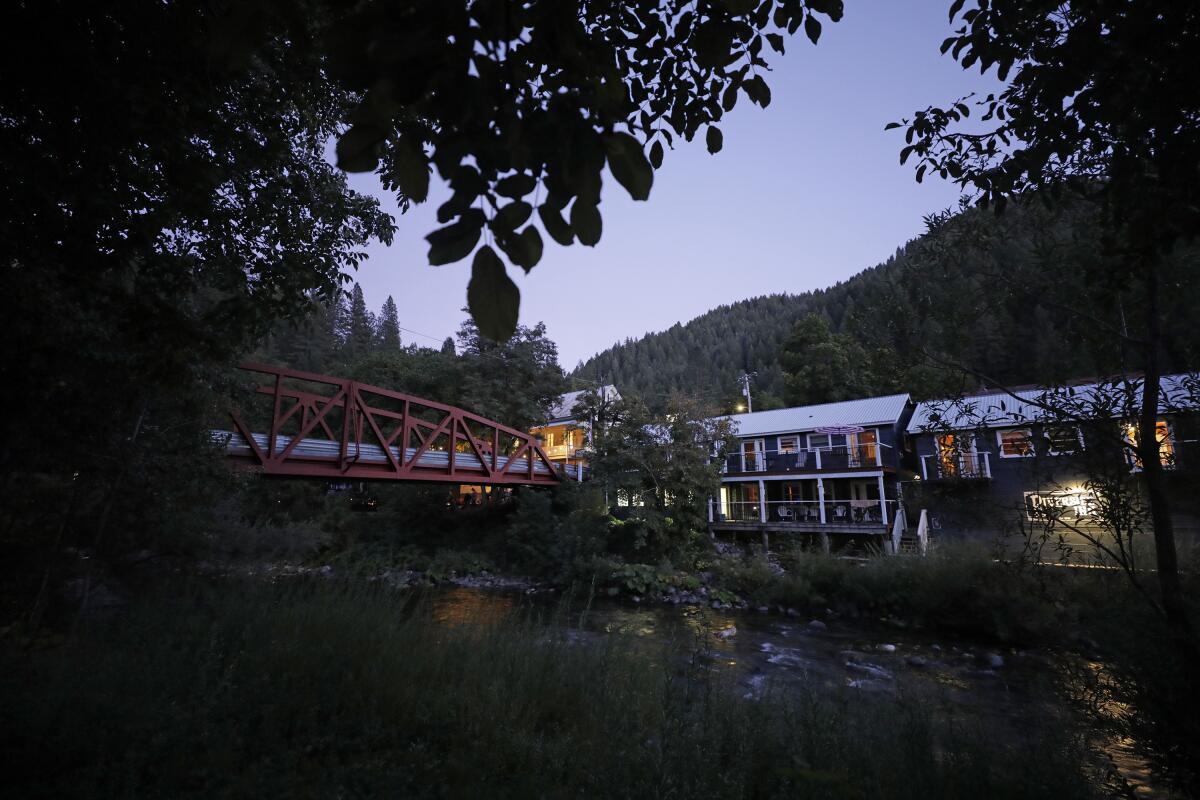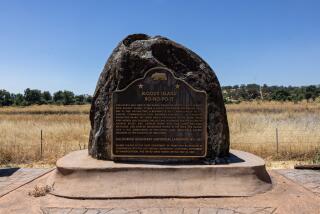In rural Northern California town, officials vote to rename Jim Crow Road

- Share via
A Northern California county has voted to rename Jim Crow Road after a debate over the racist implications of the name and accusations of “woke cancel culture.”
The 4-1 vote by the Sierra County Board of Supervisors on Tuesday came after property owners along the road, located about three miles from Downieville, asked for a name change in early April. The name will be changed to Crow City Road, as recommended by the county’s historical society.
The controversy over the road’s name unfolded in this community about 100 miles northeast of Sacramento. Sierra County is one of the least ethnically and racially diverse counties in California: About 93% of the 3,000 people who make up Sierra County are white.
“I am very pleased at the action of my colleagues and all who weighed in on this issue,” said Lee Adams, a Sierra County supervisor who originally brought the issue before the board. “Not only has an insensitive name been retired, but the new name acknowledges the lost community of Crow City that was a very early part of Sierra County history.”
The road was said to be named after a Native Hawaiian man who came to the area as a Gold Rush pioneer in 1849. There also exists a Jim Crow Canyon, Jim Crow Creek and there was once a community known as Crow City.
The words “Jim Crow” have come to stand for the racist laws that for generations kept Black people segregated in the American South. The phrase itself, which predates the Gold Rush, originated in blackface minstrelsy. (Last year, 2,500 miles away in Georgia, Jim Crow Road — named for Glennon “Jim” Crow — was renamed G.C. Crow Road.)
At the Tuesday public hearing, nearly a dozen people spoke in favor of changing the road name. Among them was William Pangman, who has owned property there since 1976.
“It’s really a matter of respecting, particularly, the dignity of Black Americans and those who recognize a real empathy is needed in that regard,” Pangman said. “The despicable and abhorrent perception of the term Jim Crow very much exists and is very much in the public mind.”
In a letter to the board last month, Pangman mentioned protests in cities across the country over the past year, stating that that, “should leave no doubt that hurtful social issues, particularly the name and denotation of patterns of racial injustice, is embodied in the categorical name of “Jim Crow.”
Property owners also referenced the public relations problem the road name has created for neighbors in the resort and tourist industry, including the owner of the Sierra Shangri-La, a small, rustic resort along the street.
Betsy Mathieson, a resident of Sierra City, said the county’s economy “relies heavily on tourists.”
“Tourists come to Sierra County for relaxation and recreation. They don’t have our insider knowledge of the history of the name Jim Crow Road,” Mathieson said. “The name Jim Crow Road does not endear us to tourists.”
Mathieson urged the board to do the right thing, citing the 100th anniversary of the destruction of a thriving Black community in Tulsa, Okla.
When Adams first brought the issue before the board in April, three of the supervisors spoke out against renaming the road, with one of them questioning why someone would buy property there if they took issue with it.
On Tuesday, four of the five supervisors voted in favor of the resolution to change the name. The only no vote came from Terry LeBlanc, who in an April discussion said, “you might as well just burn the history books because, you know, this is just going way too far as far as I’m concerned.”
At the public hearing, LeBlanc said, “I’m just not into this.”
More to Read
Sign up for Essential California
The most important California stories and recommendations in your inbox every morning.
You may occasionally receive promotional content from the Los Angeles Times.











